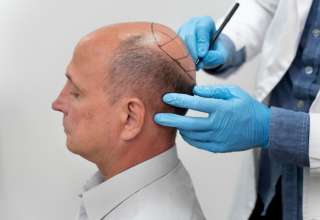When was the last time you cried? It couldn’t have been that long back or you wouldn’t be here. Crying is one of the nascent instincts of a human. It can be saying goodbye to someone you are sure you’ll never see or not getting invited to any party on Friday night. Either way, whenever the emotion is too strong to bear, our natural response is to cry. Sometimes it can be so intense that it can bring about physical reactions, like a headache. Sure, a good heartfelt cry can be therapeutic but the hangover that follows is a nightmare. Now, those of us who cry a little, or a lot, time and again, we know that the aftermath of crying is not at all less painful than what made us cry in the first place. A good cry definitely helps you get over that breakup a little but the swollen eyes and the headache just won’t go away. So here, let us look at what might be causing that searing headache after crying.
Sadness and Stress
Researchers have found that crying, which is an output of positive emotions, doesn’t really trigger headaches but negative emotions can do so often. Therefore the process of crying itself is not, generally speaking, the cause of headaches. Anxiety and stress are. Anxiety or stress or sometimes just intense sadness can prompt processes in the brain that lead to headaches and other painful sensations.
Stress is often set off by sadness and the need to cry follows suit. Stress can cause the brain to release hormones like cortisol. Cortisol works up the neurotransmitters in the brain that in turn causes physical pains like headaches after crying. The neurotransmitter acetylcholine deals with what goes on when we cry. This acetylcholine stimulates the lacrimal glands and the tears flow. A long session of crying also builds up muscle fatigue. The inflammation and the irritation of the nerves turn into a dull pain.
Types of headaches
1. Migraine headache:
Migraines often occur just on the side of the head and feel like a hammering pain. It is caused by anxiety and stress. Thus crying due to severe stress can be a trigger for migraines. Crying from non-emotional reasons has been proven to not be a cause for migraines.
2. Tension headache:
Tension headaches feel like a tightening pressure all around your head. This too stems from anxiety and stress. So, again, crying is not the direct cause. It just accompanies the stress, just like the headache. The most common type of headache after crying is the tension headache. The tension that builds up tightens up the head and sometimes the neck and the back of the head. The longer the crying affair continues, the worse is the headache supposed to be due to prolonged constriction of the muscles.
3. Sinus headache:
Sinus is caused by inflammation and so is depression. Sinus interferes with the biological clock of the body and thus the sleeping cycle and contributes to depression. Episodes of crying are common in people who suffer from depression. While crying, tears can get in the nasal passages causing a runny nose. Tears and mucus build up and apply pressure. This pressure in the sinuses again leads to headaches. So what having a sinus really means for headache after crying is that it causes both the crying and the headache after.
4. Dehydration headache:
When the body doesn’t have enough fluid or loses it excessively, it leads to dehydration. The brain, when it loses too much fluid, shrinks. This shrinking of the brain can cause headaches. Migraine headaches can also be triggered by dehydration. Crying, though seemingly the most obvious cause of fluid loss, cannot alone cause dehydration. Although if our body is already on the verge of dehydration, from the intake of insufficient fluids, crying can lead to dehydration and subsequently dehydration headaches.
How to feel better
Searching for a treatment for the headache after crying is more depressing. Isn’t crying supposed to make you feel better? Well, if you are here and have read up to this point, here are some things to help you feel a little better.
Try a compress, hot or cold, whichever you prefer. Apply the compress wherever it hurts and this is the well-verified traditional way to alleviate the pain. Massaging at the trigger points may also help.
If you are going for quick pain relief, there’s always the over the counter medicines like aspirin, ibuprofen, or acetaminophen.
If the headache can be diagnosed as being caused by sinus, nasal corticosteroids can help in bringing down the inflammation of the passages and thus relieve the pain a little.
In case of being dehydrated, intake a lot of fluids. Sometimes this works immediately. If not, try some electrolytes. Although avoid pain relievers or caffeine-induced fluids in this case, as they can further dehydrate the body.
If the bouts of crying are regular and no physical health issues are involved, remember to check up on your mental health. It should be of the utmost priority. Look out for signs of depression and consult a mental health professional immediately.
The gist of it
The most popular opinion thus remains that it is most common to get a headache after crying due to the tension caused by the crying, or the emotional strain that made you cry in the first place.
If you are going through one of those headaches right now, you know how awful it is. But that doesn’t mean that you shouldn’t cry, or crying is not natural. It’s an instinct and holding it back will only make it worse. If the situations you’re facing seem to worsen, there are a lot of people who are willing to help you out, and seeking help is never a sign of weakness. It’s okay to feel things intensely and it is okay to let it all out.
So, take a deep breath, try to relax and simple home remedies and a few medicines, if necessary, are bound to take the pain away.
Read More: 4 Plant-based Remedies to Get Rid of a Bad Headache














